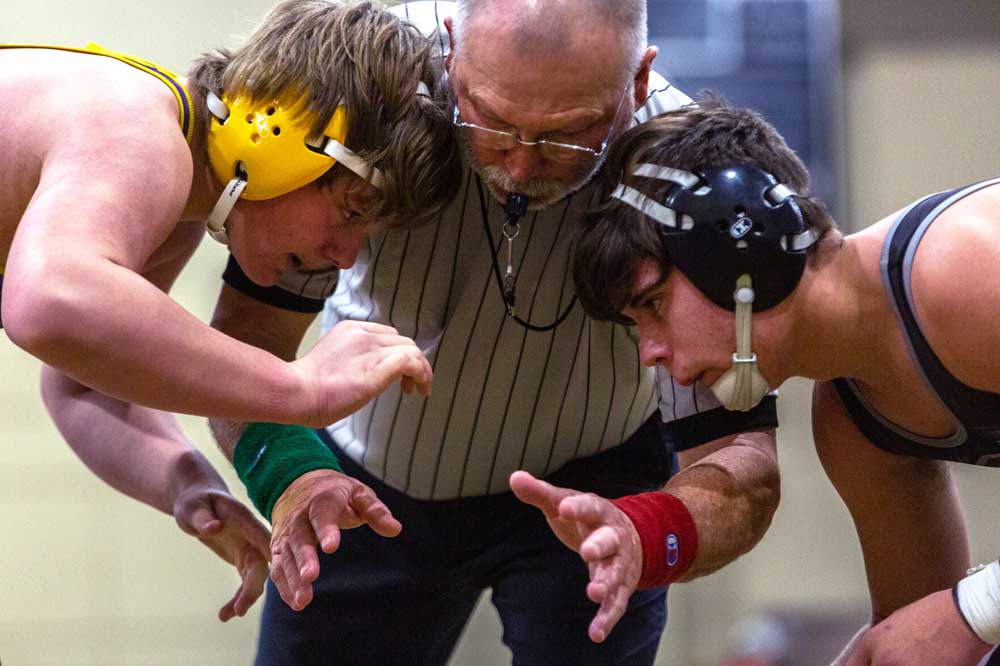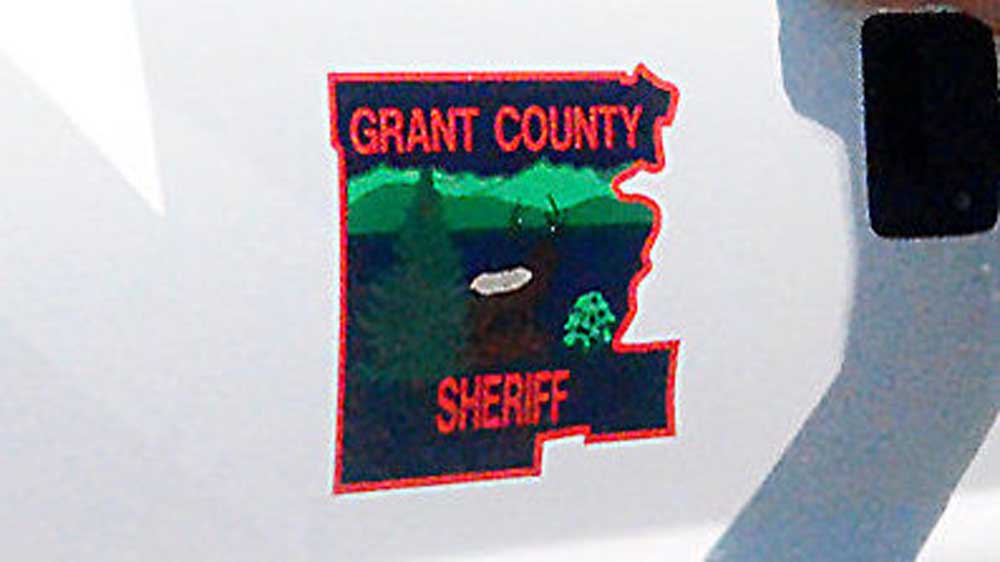Officials shortage has the OAOA recruiting for all sports
Published 1:00 pm Friday, January 27, 2023

- Ethan Morgan of Baker, left, and Irrigon’s Bennie Ayala await referee Doug Henderson’s signal to start the match on Dec. 22, 2021, at the Rollin Schimmel Memorial Wrestling Tournament in Pendleton. There is a statewide officials shortage in 2023 for all sports.
PENDLETON — We’re hiring.
Trending
That’s what the Oregon Athletic Officials Association wants people to know, and the sooner people step up and apply, the better.
“We are way more than a little short of officials,” OAOA Executive Director Jack Folliard said. “It has been going on for several years, and has been exacerbated since COVID. If your heart beats, we will train you.”
The association has lost dozens of officials because of age and burnout, but one of the biggest reasons is the lack of respect from parents and fans, especially at the lower level.
Trending
“People who have never tried to officiate don’t know what it’s like,” Folliard said. “We have a great training program, but the best way to learn is to drive the bus.”
The OAOA provides officials for seven sports — baseball, softball, football, volleyball, soccer, wrestling and basketball — for the 292 schools governed by the Oregon Schools Activities Association.
Ten years ago, the association had 4,000 officials for the seven sports. Now, that number is down to 2,300.
“Officials are having to double up on games, which takes time away from their jobs and families,” Folliard said. “Baseball and softball are down 30-33%. That’s not just us, it’s nationwide. We have 20-25% of our officials working more than one sport.”
Rick Jaggars, the commissioner for the Blue Mountain Baseball/Softball Officials Association, has 27 officials — 13 who do baseball, 13 who are strictly softball, and one who does both.
“We have interest from some new people,” Jaggars said. “That doesn’t mean they are going to show up, register, pay the fee or umpire. I have one new one for softball and four new ones for baseball — if they show up.”
The Blue Mountain Association assigns officials for games from Milton-Freewater to Heppner.
“We have the largest geographic area of the 16 associations in the state of Oregon,” Jaggars said.
Jaggars said he is fortunate that his entire crew from last year is returning, but if they have five doubleheaders scheduled for one day, things get a little tight. A few new bodies would definitely help.
“We are in trouble because five of our guys are over 70, and four of them are my best,” he said. “They have worked several state tournaments. The median age is 54. We don’t have young people. My young guys are in their 40s. Our guy who worked the state softball playoffs last year was 77. One of our softball officials, Jim Robinson, is 79 or so and works college and high school games.”
Baseball and softball games have two-man crews for the regular season, and that goes to three for the postseason.
Football runs five-man crews, and basketball is three, which stretches associations around the state.
Let’s talk moneyFolliard, who has worked high school games and Pac-12 football games, said officiating has its benefits.
“I have been doing football and basketball for a long, long time,” he said. “You make lifelong friends, make a little money and get some exercise.”
This coming school year, officials are scheduled to make more money, and the money will be the same across the board whether they work a 6A game or a 1A game.
This school year, football officials made $74 for a large-school game such as Pendleton, and $70 for a smaller school such as Heppner. Junior varsity and freshman games are a little less.
This coming spring, baseball officials will make $71 for large schools and $67 for small schools. Softball is $66 and $62.
Next year, baseball and softball officials will make the same per game, according to Jaggars.
Officials also are compensated for their travel.
Training is availableAll Oregon high school officials and associations are certified and chartered by the OSAA.
Officials are trained by the OAOA, and must attend annual training and pay required fees.
Officials also pay for their own gear, with baseball and softball being the most expensive, followed by football.
“Anyone can start out at the lower level and work their way up,” Folliard said. “The OSAA is trying to encourage high schools to offer officiating classes as part of their PE courses. We have the personnel to help with that. It might be more fun to officiate in the summer instead of the normal summer job.”
Minimum requirements to become an OSAA-certified official include being 18 years old, though exceptions are made for youth officials. Officials must register with the OSAA and pay fees, pass a background check and participate in annual training.
For those interested in officiating, go to newofficials.org and sign up for more information.








